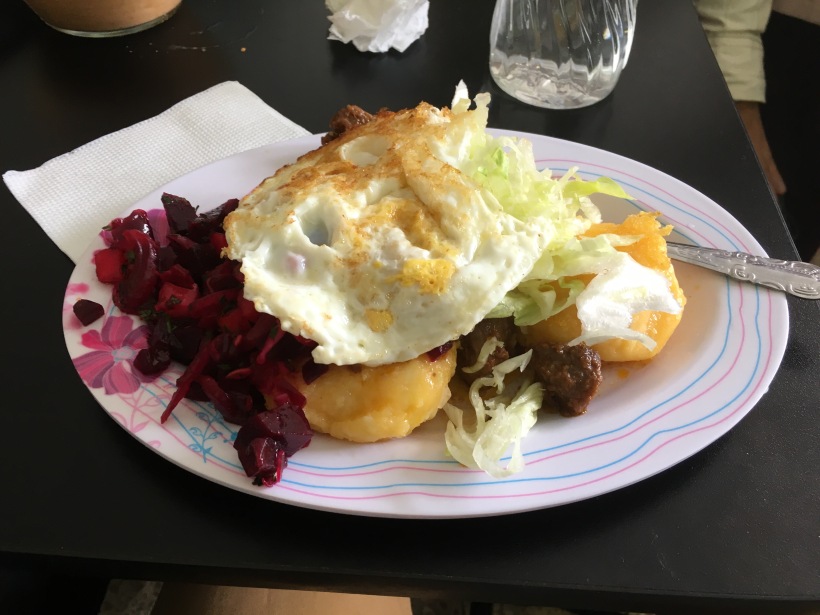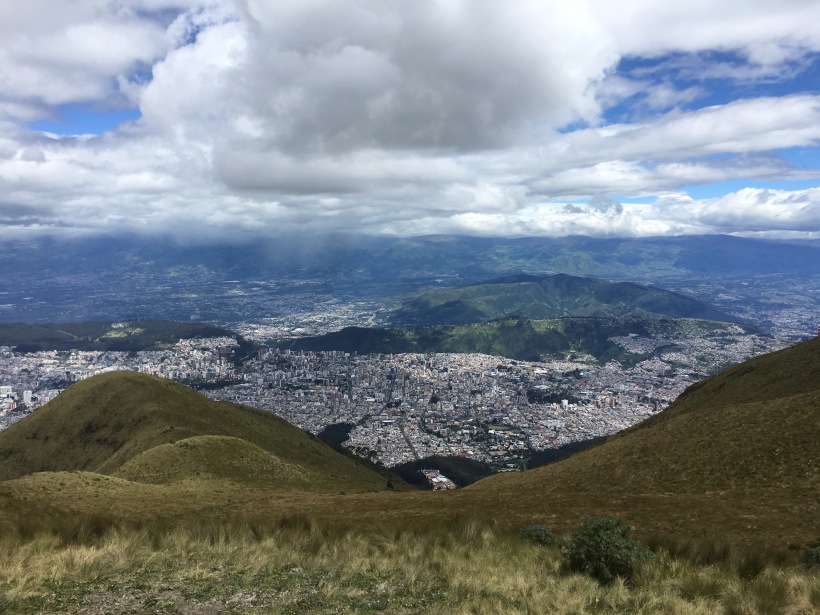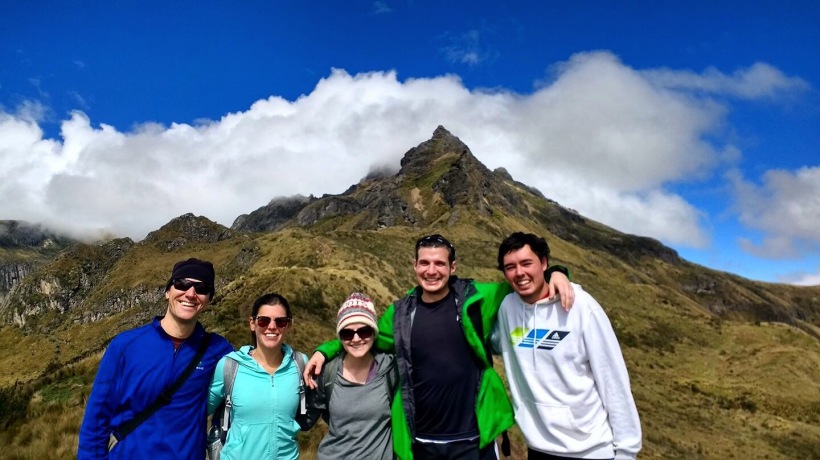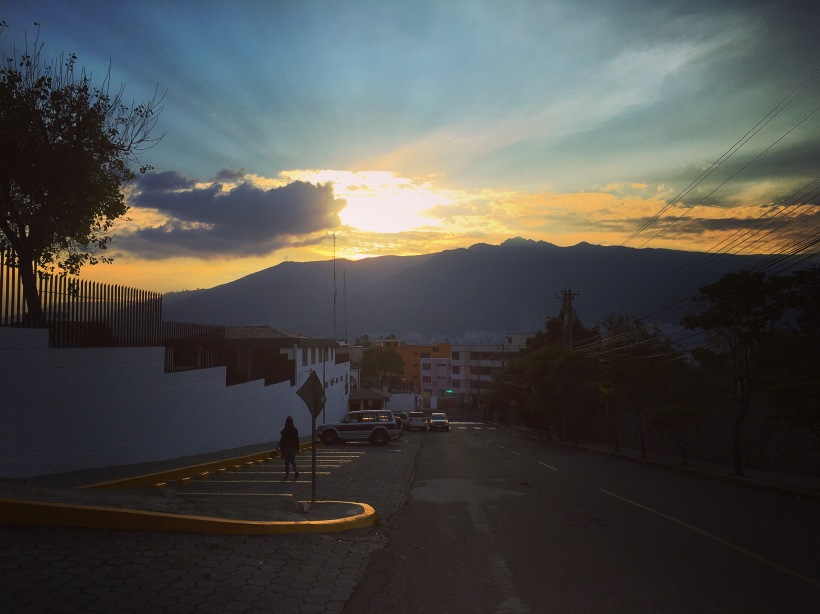When I stepped off the plane in Ecuador a little over two weeks ago, I expected everything to feel different. It was my first time in a “third world” country, so I was surprised when it didn’t seem much different from what I was accustomed to in the United States. Ecuador is definitely somewhat developed (more so than I expected, and more so than I think most people realize), but there are still many American conveniences that do not exist here.
I have slowly started to realize some “third world problems” as time goes on. I gave up my oversized room and walk-in closet to share a tiny house and bathroom with five other people and countless visitors every day. I sacrificed my cell phone plan with data for a $3/month Ecuadorean phone number with very limited features. I traded my white male privilege to be seen as an outsider and constantly face stares from people on the street. I gave up my own car to commute every day on an extremely overcrowded bus, where I have to watch my back for pickpockets and hold on to the handles for dear life through twists and turns.

Even the simplest conveniences that we take for granted in the U.S. are less prevalent here in Ecuador. In order to drink a glass of water or wash food, we have to buy bottled water or take the time to boil it on the stove. Mirrors are very rare; I have only seen my reflection twice since I have been here. The faucets do not even have a knob for warm/hot water, and the best temperature the shower gets is room temperature. My only internet access is from a neighbor’s house, which is a weak connection that they typically only turn on for a couple hours a day. (As if graduating college and starting out in the real world wasn’t enough already!)
However, I have realized that I really do not have it that bad. Many of these “third world problems” are actually blessings in disguise. I have started to realize that if I have less stuff, I have more time and energy to focus on what really matters–my religion, my relationships, my work, and myself. Without Internet, I spend more time talking with my host family and learning about Ecuadorian customs instead of constantly scrolling through Facebook. Since I do not have a mirror, I have started to care much less about my physical appearance. Furthermore, I have begun to realize that I never did anything to deserve any of the privileges I was born with, anyways. I still have it relatively easy here, and I still have many benefits of being a white, straight, Christian male. My Ecuadorian family and neighbors work just as hard as I have my whole life, but I was blessed to have grown up in America and they were not. Aside from our countries of origin, we have relatively no differences. I have been given the chance to attend college, graduate with good grades, own a car, and save up money from my jobs. I have never had to question where my next meal might come from. While I have worked hard to achieve everything that I have in life, I still owe a lot of my success to the fact that I was born in the United States with desirable physical traits. I hope that during my time here I am able to help Ecuadorians to achieve their goals against all odds, because they deserve to achieve their dreams just as much as I do. I am not here to change the world in huge ways, I just want to do simple actions to help Ecuadorians change their own world.
Living simply has also taught me to appreciate las pequeñas cosas (the little things) that I used to take for granted. For example, when my neighbor finally turns on his Internet, I get very excited because it means I can temporarily reconnect with friends and family, and listen to music. Finding a dime on the sidewalk is another great feeling. Furthermore, Ecuador has many simple aspects that amaze me every day. I am especially grateful for delicious 4-course almuerzos (lunches) that only cost $2.50. I enjoy eating popcorn with my soup, and plantains are quickly becoming one of my new favorite foods. I love that I can walk down the street and see the sun setting over distant volcanos. Ecuador is an incredibly beautiful country and its people are very friendly and generous.

Despite all of the challenges, I am loving every minute of living here. While it feels like every day I have to metaphorically climb GuaGua Pichincha (the 15,696 ft. volcano near Quito), I know that the process is going to be completely worth it. Living in Ecuador, every day is a new adventure.
Training has been very intense and time-consuming, but I have learned valuable information about safety, security, teaching tactics, Ecuadorian culture, and the Spanish language. In my free time, I have spent lots of time with my host family and shared many traditional Ecuadorian meals with them. I have extensively explored Nayón (the town I am living in) and Quito (the nearby capital of Ecuador). We also saw El Panecillo (a giant statue of Mother Mary) at night and met the U.S. Ambassador to Ecuador.


I have also had the incredible opportunity to hike all the way to the summit of Volcán Pichincha, and to travel to the beautiful cities of Cayambe and Ibarra in the north.



 I am so thankful for the incredible opportunities I have here in this beautiful country. My dreams have started to become a reality, and that is worth going through all of the inconveniences in the world.
I am so thankful for the incredible opportunities I have here in this beautiful country. My dreams have started to become a reality, and that is worth going through all of the inconveniences in the world.



So proud of you! Vaya con Dios! Dad
LikeLike
Thanks Dad!!
LikeLike
Remarkable! I love the picture of your room- it gives a great sense of life in Ecuador. The landscape is breathtaking!
LikeLike
Thank you!! Hope you are doing well!
LikeLike
Cullen,
I am a friend of your mom’s and she was kind enough to share your blog with me. I am inspired, not just by your sense of adventure, but by your selfless desire to make the world around you a bit better by having been in it. Your photos are just amazing and I’m in awe of the beauty that is Ecuador. Be assured of my prayers as your journey continues…trusting God and our Blessed Mother to guide and protect you always.
God bless you!
Barb Fahey
LikeLike
Barb,
Thank you so much for the kind words and prayers! It means so much. God bless you too!
Cullen
LikeLike
Beautiful pictures! I love how introspective you are. You are really taking to heart and learning from everything you experience!
LikeLiked by 1 person